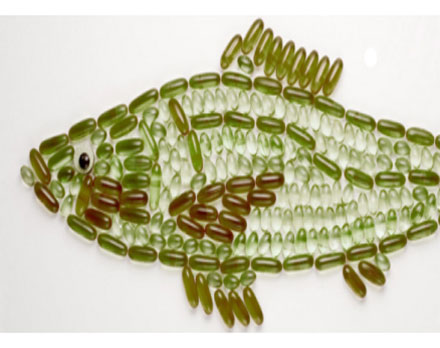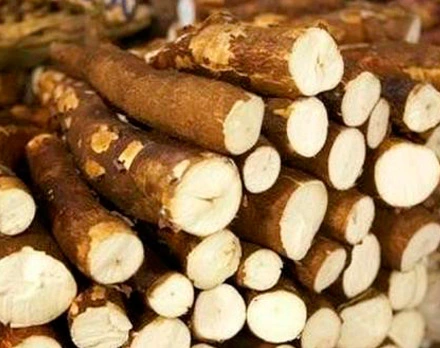Safety of Allulose Syrup
Safety of Allulose Syrup
The safety of Allulose syrup is high, and it will not cause obvious harm to human body under the condition of reasonable use. The following is a concrete analysis:
I. The relevant certifications.
FDA certification: The US Food and Drug Administration (FDA) has approved the use of Allulose as a food additive and identified it as a "GRAS" substance. This means that Allulose is considered to be safe and reliable under the prescribed conditions and dosage.
Other certifications: International authorities such as the European Food Safety Agency (EFSA) also evaluated Allulose and recognized its safety in the food field.
II. Metabolic characteristics.
1. Limited absorption of human body: After Allulose syrup enters human body, most of it will not be absorbed by the small intestine, but will directly enter the large intestine, where it will be fermented and utilized by intestinal microorganisms, and only a small amount will be absorbed into the blood circulation, which reduces its possible burden on the body's metabolic system.
2. Little influence on blood sugar: Because Allulose syrup will not cause the rapid rise of blood sugar, it is also a relatively safe sweetener choice for people who need to strictly control their blood sugar, such as diabetics and obese people, and will not cause adverse effects on their blood sugar management.
III. The toxicity study.
1. Acute toxicity test: A large number of animal experiments show that the acute toxicity of Allulose syrup is very low, even if a large amount of Allulose is ingested at one time, it will not lead to acute poisoning symptoms or death of animals.
2. Long-term toxicity test: In the long-term animal feeding test, the food containing Allulose syrup was fed to animals for a long time, and it was not found that Allulose had obvious adverse effects on the growth and development, reproductive function, blood biochemical indexes and histopathology of animals. There is no evidence that Allulose is carcinogenic, teratogenic and mutagenic.
IV. Adverse reactions.
Possible digestive problems: Allulose syrup is generally safe, but if it is taken in excess, it may be fermented by bacteria in the intestine to produce gas, leading to indigestion symptoms such as bloating and diarrhea. However, these symptoms are usually temporary and can be alleviated after reducing intake.
-
Inulin
-
Polydextrose
-
Resistant Dextrin
- Trehalose
- Resistant Dextrin(Soluble Corn Fiber)
- Resistant Dextrin(Soluble Corn Fiber)(Powder)
- Resistant Dextrin(Soluble Tapioca Fiber)(Powder)
- Resistant Dextrin(Soluble Tapioca Fiber)(Liquid)
- Resistant Maltodextrin Powder
- Resistant Maltodextrin Powder (Liquid)
- Organic Resistant Dextrin Powder (Corn Type) 70%
- Organic Resistant Dextrin Powder (Corn Type) 90%
- Organic Resistant Dextrin Powder (Tapioca Type) 70%
- Organic Resistant Dextrin Powder (Tapioca Type) 90%
- Organic Resistant Dextrin Syrup (Corn Type) 70%
- Organic Resistant Dextrin Syrup (Corn Type) 90%
- Organic Resistant Dextrin Syrup (Tapioca Type) 70%
- Organic Resistant Dextrin Syrup (Tapioca Type) 90%
- Organic Resistant Maltodextrin Powder (Corn Type) 70%
- Organic Resistant Maltodextrin Powder (Tapioca Type) 70%
- Organic Resistant Maltodextrin Syrup (Corn Type) 70%
- Organic Resistant Maltodextrin Syrup (Tapioca Type) 70%
- Organic Soluble Corn Fiber Powder 70%
- Organic Soluble Corn Fiber Powder 90%
- Organic Soluble Corn Fiber Syrup 70%
- Organic Soluble Corn Fiber Syrup 90%
- Organic Soluble Tapioca Fiber Powder 70%
- Organic Soluble Tapioca Fiber Powder 90%
- Organic Soluble Tapioca Fiber Syrup 70%
- Organic Soluble Tapioca Fiber Syrup 90%
- Resistant Dextrin Powder (Corn Type) 70%
- Resistant Dextrin Powder (Corn Type) 90%
- Resistant Dextrin Powder (Tapioca Type) 70%
- Resistant Dextrin Powder (Tapioca Type) 90%
- Resistant Dextrin Syrup (Corn Type) 70%
- Resistant Dextrin Syrup (Corn Type) 90%
- Resistant Dextrin Syrup (Tapioca Type) 70%
- Resistant Dextrin Syrup (Tapioca Type) 90%
- Resistant Maltodextrin Powder (Corn Type) 90%
- Resistant Maltodextrin Powder (Tapioca Type) 90%
- Resistant Maltodextrin Syrup (Corn Type) 90%
- Resistant Maltodextrin Syrup (Tapioca Type) 90%
- Soluble Corn Fiber Powder 70%
- Soluble Corn Fiber Powder 90%
- Soluble Corn Fiber Syrup 70%
- Soluble Corn Fiber Syrup 90%
- Soluble Tapioca Fiber Powder 70%
- Soluble Tapioca Fiber Powder 90%
- Soluble Tapioca Fiber Syrup 70%
- Soluble Tapioca Fiber Syrup 90%
-
Dioscorea Opposita Dietary Fiber
-
Wheat Dietary Fiber
-
Oat Dietary Fiber
-
Polydextrose Powder (Conventional Type)
-
Polydextrose Powder (Special Type)
-
Polydextrose Powder (Sugar Free Type)
-
Polydextrose Powder (Type II)
-
Polydextrose Powder (Type III)
-
Polydextrose Syrup (Conventional Type)
-
Polydextrose Syrup (Refined Type)
-
Polydextrose Syrup (Special Type)
-
Polydextrose Syrup (Standard Type)
-
Polydextrose Syrup (Sugar Free Type)
- Fructo Oligosaccharide
-
Malt Oligosaccharide
- Isomalto-oligosaccharide 900 Powder
- Isomalto-oligosaccharide 900 Powder(Corn)
- Isomalto-oligosaccharide 900 Powder(Tapioca)
- Isomalto-oligosaccharide 900 Syrup
- Isomalto-oligosaccharide 900 Syrup(Tapioca)
- Isomalto-oligosaccharide 900 Liquid (Corn)
- Isomalto-oligosaccharide 900 Liquid (DP3)
- Isomalto-oligosaccharide 900 Liquid (Tapioca)
- Isomalto-oligosaccharide 900 Powder (Corn)
- Isomalto-oligosaccharide 900 Powder (DP3)
- Isomalto-oligosaccharide 900 Powder (Tapioca)
- Organic Isomalto-oligosaccharide 900 Liquid (Corn)
- Organic Isomalto-oligosaccharide 900 Liquid (DP3)
- Organic Isomalto-oligosaccharide 900 Liquid (Tapioca)
- Organic Isomalto-oligosaccharide 900 Powder (Corn)
- Organic Isomalto-oligosaccharide 900 Powder (DP3)
- Organic Isomalto-oligosaccharide 900 Powder (Tapioca)
- Xylo-oligosaccharide
- Galacto-oligosaccharide
-
Mannan Oligosaccharide
-
Isomaltulose Powder
-
Saigao Stachyose






